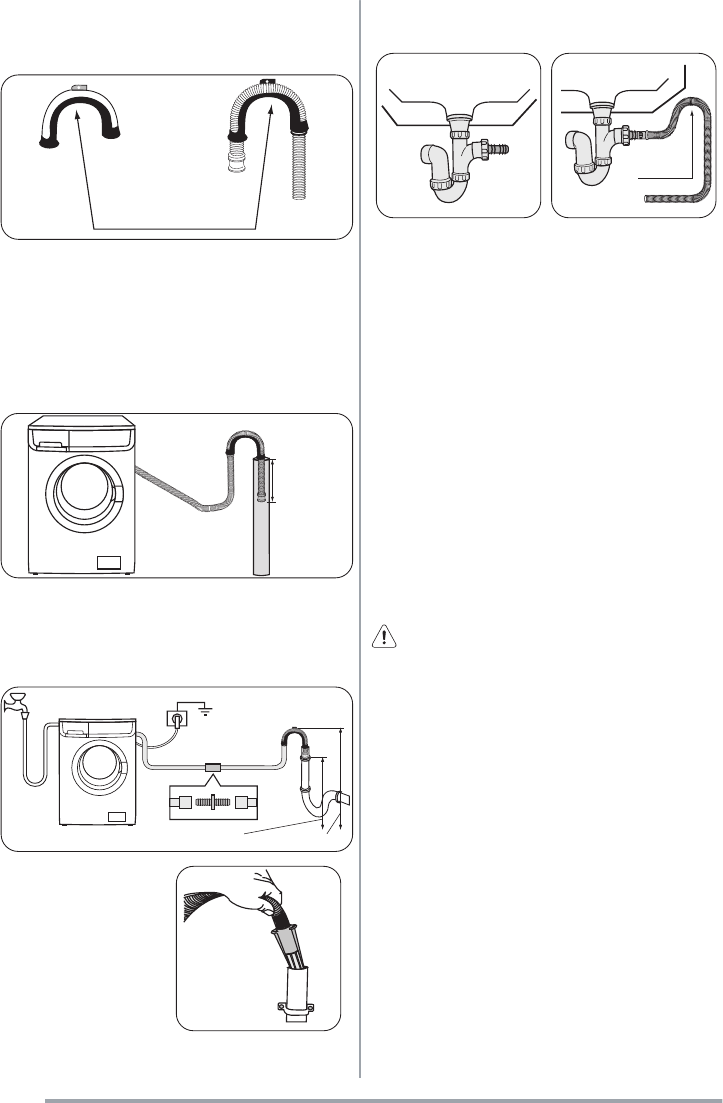
Firstly form a hook in the end of the drain hose using
the “U” piece” supplied.
“U” piece supplied
Place the drain hose into your standpipe, which should
have an internal diameter of approximately 38 mm thus
ensuring there is an air break between the drain hose
and standpipe.
When discharging into a standpipe ensure that the top
of the standpipe is no more than 90 cm (35.4'') and no
less than 60 cm (23.6'') above floor level.
38 mm (1.5”)
standpipe
diamater
30 cm (12”)
The drain hose may be extended to a maximum of 4
metres. An additional drain hose and joining piece is
available from your local Service Force Centre. The
joining piece must have an internal diameter of 18 mm.
Min. 60 cm (23.6”)
Max. 90 cm (35.4”)
If your drain hose looks
like this (see beside) you
do not require the “U”
piece”. Just push the hose
firmly in to the standpipe.
2. Onto a sink outlet spigot.
Loop
If the outlet spigot has not
been used before, remove
any blanking plug that
may be in place.
Push the drain hose onto
the spigot and secure with
a clip, ensure a loop is
formed in the drain hose
(see above) to prevent
waste from the sink enter-
ing the appliance.
If you intend to drain the hose from the machine into a
sink, make sure that the sink is empty and the plug hole
is not blocked. Use the plastic “U - Piece” supplied.
Special conditions
If the floor is carpeted or covered with crumbly or soft
material, insert a rigid support base under the feet to pre-
vent noise, vibration or displacement. The base should
protrude a few centimetres beyond the edges of the ap-
pliance.
Warning! The appliance should NOT be placed on
deep pile carpeting.
Note!
Please ensure that when the appliance is installed it is
easily accessible for the engineer in the event of a
breakdown.
In the interest of the environment
The appliance should be connected to the FOUL drainage
system, the water will then be taken to a sewage works for
treatment before being discharged safely into a river.
It is essential that these appliances are not connected to
the surface water drainage system as this water is dis-
charged directly into a river or stream and may cause
pollution.
If you require any further advice please contact your local
water authority.
20


















